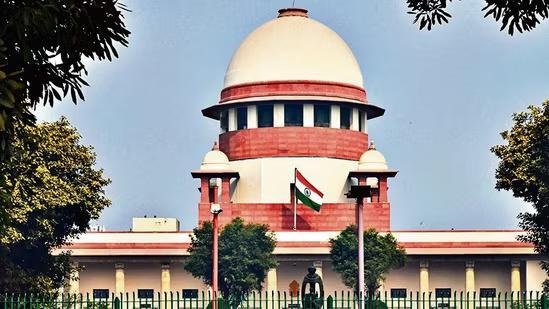
No Action Against Owners of 10 & 15-yr-old Diesel & Petrol Vehicles for 4 Weeks: SC
The Supreme Court of India has passed a significant order regarding the ban on 10-year-old diesel and 15-year-old petrol vehicles in Delhi. In a recent hearing, the apex court ruled that no “coercive” action will be taken against the owners of these vehicles for a period of four weeks. This decision was made in response to an application filed by the Delhi government, which challenged the ban on the vehicles as a pollution control measure in the capital.
The ban on old vehicles was implemented by the National Green Tribunal (NGT) in 2015 to reduce the rising levels of air pollution in Delhi. The NGT had directed the Delhi government to scrap diesel vehicles older than 10 years and petrol vehicles older than 15 years, as they were contributing significantly to the city’s pollution problem. However, the Delhi government had approached the Supreme Court, challenging the ban, citing the difficulties that it would cause to the public and the lack of adequate public transport facilities.
The Supreme Court’s recent order is a temporary reprieve for the owners of old vehicles, who were facing the threat of having their vehicles seized or fined. The court has directed the Delhi government to come up with a more effective solution to the problem of pollution caused by old vehicles, rather than simply banning them. The court has also asked the government to explore alternative options, such as upgrading the existing public transport system and promoting the use of electric vehicles.
The ban on old vehicles was a part of a larger effort to reduce pollution in Delhi, which has become a major concern in recent years. The city’s air quality has consistently been ranked among the worst in the world, with levels of particulate matter (PM) and nitrogen dioxide (NO2) exceeding safe limits. The causes of this pollution are complex and multifaceted, but the contribution of old vehicles is significant.
Old vehicles are a major source of pollution because they emit higher levels of pollutants, such as PM, NO2, and volatile organic compounds (VOCs). These pollutants can cause serious health problems, including respiratory diseases, heart attacks, and strokes. In addition, old vehicles also contribute to the formation of ground-level ozone, a major component of smog.
The Delhi government had argued that the ban on old vehicles was necessary to reduce the city’s pollution levels and to protect public health. However, the owners of old vehicles had argued that the ban was unfair and would cause significant hardship to them. They had also argued that the government had not provided adequate alternatives, such as public transport and electric vehicles, to replace their old vehicles.
The Supreme Court’s order is a significant setback for the Delhi government’s efforts to reduce pollution in the city. However, the court’s decision also highlights the need for a more comprehensive and effective solution to the problem of pollution caused by old vehicles. The government must explore alternative options, such as upgrading the existing public transport system and promoting the use of electric vehicles, to reduce pollution and protect public health.
In conclusion, the Supreme Court’s order regarding the ban on old vehicles in Delhi is a significant development in the ongoing efforts to reduce pollution in the city. While the order provides a temporary reprieve for the owners of old vehicles, it also highlights the need for a more effective solution to the problem of pollution caused by old vehicles. The Delhi government must explore alternative options and work towards reducing pollution and protecting public health.






